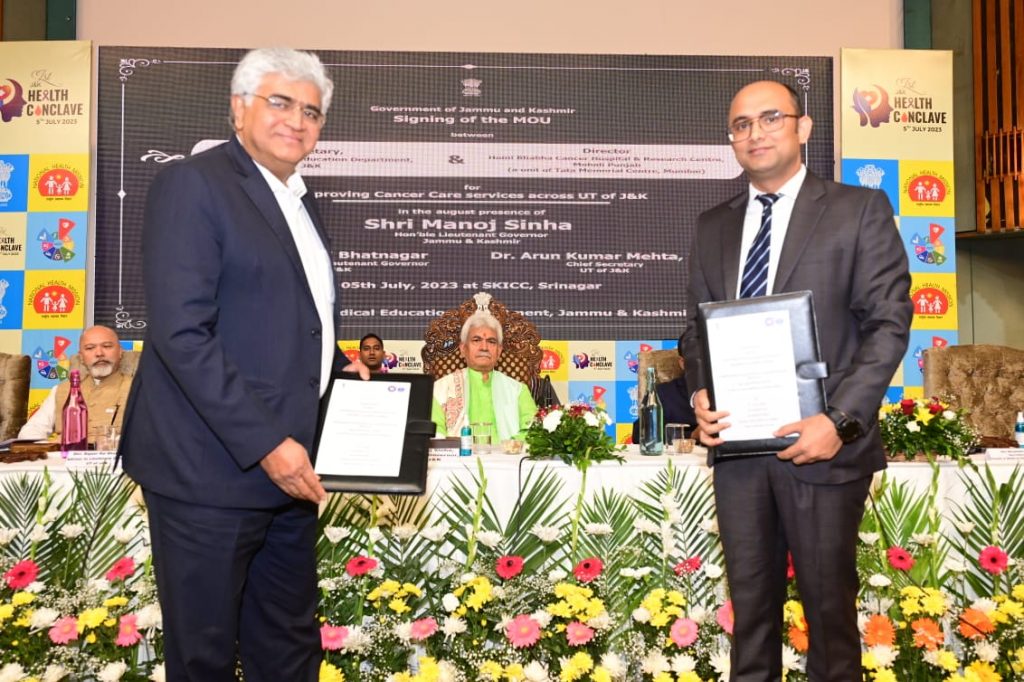
J-K administration has announced setting up of a dedicated mental health authority, in response to the growing mental health crisis in the UT, more so in Kashmir, writes Riaz Wani
On September 18, Jammu and Kashmir announced the setting up of a dedicated mental health authority, in response to the growing mental health crisis in the union territory, more so in Kashmir. The primary objective of this authority is to oversee and regulate all mental health facilities within the region, ensuring they are properly registered and conform to established guidelines.
The Jammu and Kashmir administration has already launched India’s first chatbot for people in mental distress on July 5 following a record number of distress calls to the Tele-Manas centre this year, reflecting the sweeping nature of the mental health crisis in the region.
Tele Mental Health Assistance and Networking Across States (Tele-MANAS) initiative was launched by the Union Ministry of Health & Family Welfare during October 2022. It aims to provide free tele-mental health services all over the country round the clock, particularly catering to people in remote or under-served areas. Every Tele-MANAS centre has the facility of trained psychiatrists and counselors who refer the patients in acute psychological distress to locally available Government run mental health centres in case the need arises.
“We are number one state in terms of calls received per thousand population ,” said Professor Arshad Hussain at Government Institute of Mental Health and Neurosciences, adding their centre was among the three best in India. “Two others are Tamil Nadu and Maharashtra in terms of number of calls received and number of hours spent on calls. This rating is done centrally by IIT Bangalore.”
In the nine months after the launch of Tele-MANAS in Kashmir on November 4, 2022, the Institute of Mental Health and Neurosciences (IMHANS), Srinagar, has received 23,000 calls from people facing mental health issues across the union territory. The first-of-its-kind mental health helpline is a three-tier system that has mental health counselors, clinical psychologists and psychiatrists available for patients’ calls.
Given Kashmir’s ballooning mental health crisis, it is one of the neediest places for the helpline and the subsequent introduction of the chatbot. The persistent conflict in Kashmir has resulted in more than half of the region’s population suffering from psychiatric illness, with depression emerging as a predominant concern. According to a study, a striking 55.72% of the Kashmiri population is grappling with depression, with the most susceptible age group being individuals aged 15 to 25 years old. Worryingly, the burden of depression is reported to be disproportionately higher in rural areas, particularly among rural females.
Lancet alert
Earlier this year, the Lancet in a report on the National Tele Mental Health Programme (NTMHP) in Kashmir – under which Tele-MANAS falls – revealed the dire state of mental health in the region.
“The current step is expected to ensure cost-and-time-effective and comprehensive services for the poorly served population of the region, strengthening mental health, an area that has been historically neglected in Jammu and Kashmir,” the Lancet article titled ‘Reducing the mental health treatment gap in Kashmir: scaling up to maximise the potential of telepsychiatry’ read.
The issue of mental health is not unique to Kashmir, as it remains a major concern in India as a whole. With a population of 1.4 billion, India faces numerous challenges such as poor awareness of mental illness, stigma, high treatment gap, and a shortage of mental health professionals to manage widely prevalent mental illnesses. Most of these professionals are concentrated in urban areas, leaving rural areas underserved. This despite the fact that India was one of the first lower- and middle-income countries to adopt the Mental Health Program in 1982.
But NTMHP does offer a hope: With an estimated 1.2 billion mobile phone users and 600 million smartphone users, the programme is expected to reach a large portion of patients, eventually reducing the colossal treatment gap. In Kashmir, the launch of mental health chatbot has made a further redeeming difference.
A dedicated mental health authority will integrate mental health into the broader healthcare system, ensuring oversight and accountability.
“There needs to be greater investment in mental health services, including training mental health professionals and increasing the number of psychiatric training institutes,” read an editorial in a local daily. “This is where the mental health authority will come in handy. It will go a long way to not only institutionalize but also deepen the penetration of the treatment of the mental health patients in the region.”













